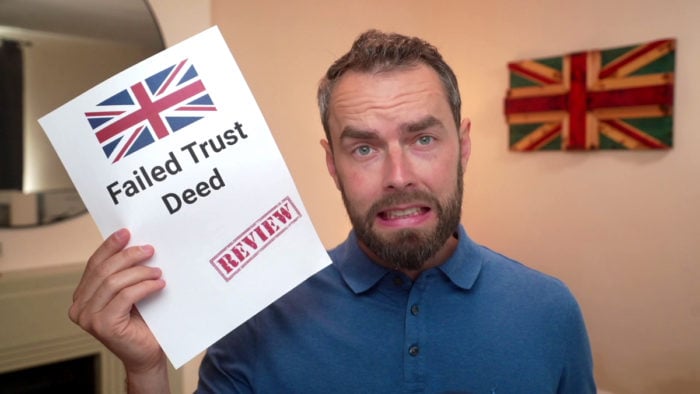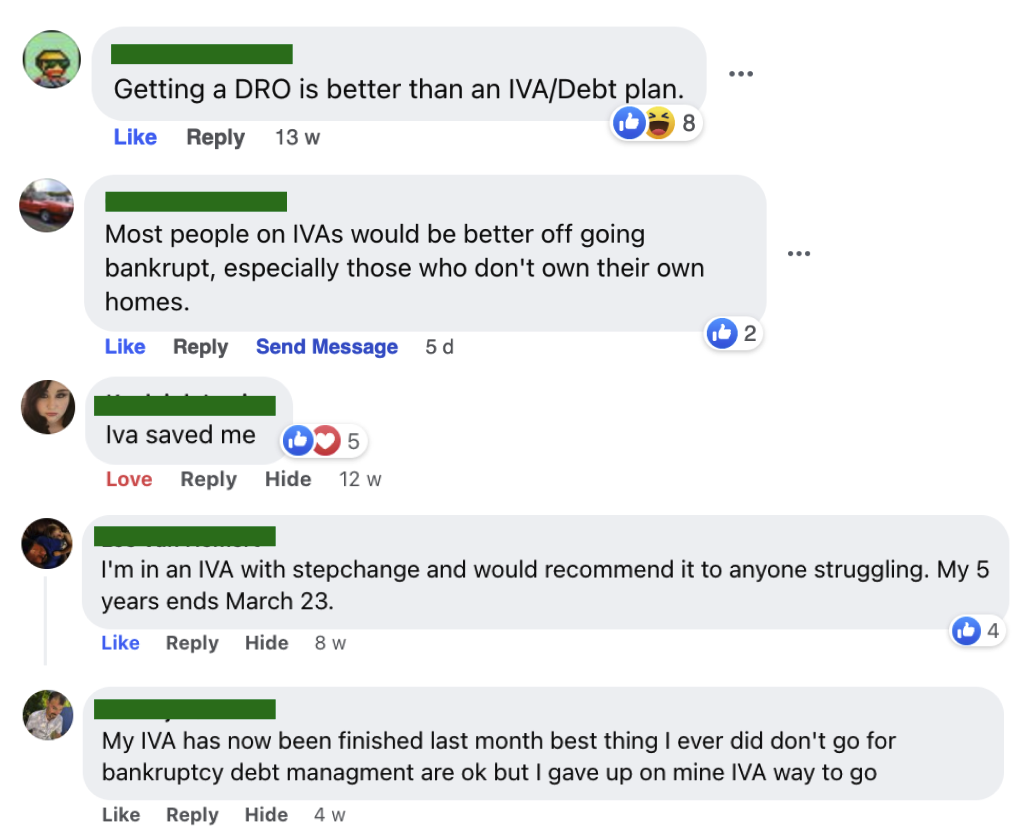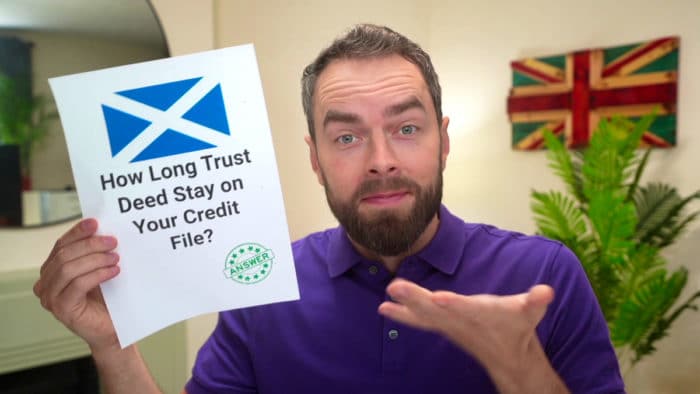Failed Trust Deed – What You Can Do, FAQs & Tips
For free & impartial money advice you can visit MoneyHelper. We work with The Debt Advice Service who provide information about your options. This isn’t a full fact-find, some debt solutions may not be suitable in all circumstances, ongoing fees might apply & your credit rating may be affected.

For free & impartial money advice you can visit MoneyHelper. We work with The Debt Advice Service who provide information about your options. This isn’t a full fact-find, some debt solutions may not be suitable in all circumstances, ongoing fees might apply & your credit rating may be affected.
Are you keen to learn about trust deeds? Or do you have worries about what happens if a trust deed fails? You’ve come to the right place.
We know that being in debt can be scary, but you’re not alone. Every month, over 170,000 people like you visit our website seeking advice on money matters.
In this easy-to-follow guide, we’ll explain:
- What a trust deed is
- Steps to keep your trust deed from failing
- What to do if your trust deed fails
- Other ways to handle debt in Scotland
- How to end a trust deed
We know it’s hard to face money problems, but don’t worry. Our team knows a lot about money and debt, and we’re ready to help you understand these tough topics.
What is a Trust Deed?
A trust deed is a voluntary agreement that is made between you and your creditors (the people to whom you owe money).
A trust deed involves you paying a regular amount of money towards your debts in the form of monthly payments for a fixed period of time. When this time ends, any remaining debts you have are written off.
Steps to Avoid a Failed Trust Deed:
To ensure a successful process with your Trust Deed, it is important to:
- Have regular check-ins with your trustees.
- Set reminders for your monthly payments.
- Budget effectively.
What if My Protected Trust Deed fails?
If you don’t manage your trust deed well enough, it will fail.
Typically, this happens when you miss too many monthly payments towards your trust deed, and your trustee isn’t confident in your ability to make your repayments.
As a result, they will choose to terminate your trust deed.
If this happens, then:
- Your creditors won’t be legally bound by the terms of your trust deed anymore. Hence, they will be able to get in touch with you as well as take legal action(s) against you.
- A few examples of legal action that your creditors could take against you include sequestration, wage arrestment or another court order.
- There’s a chance that your trustee may even petition for your sequestration in court as well.
- The interest and charges on your debt(s) will become unfrozen.
How a debt solution could help
Some debt solutions can:
- Stop nasty calls from creditors
- Freeze interest and charges
- Reduce your monthly payments
A few debt solutions can even result in writing off some of your debt.
Here’s an example:
Situation
| Monthly income | £2,504 |
| Monthly expenses | £2,345 |
| Total debt | £32,049 |
Monthly debt repayments
| Before | £587 |
| After | £158 |
£429 reduction in monthly payments
If you want to learn what debt solutions are available to you, click the button below to get started.
The Alternatives to a Trust Deed in Scotland
Debt Arrangement Scheme
With a Debt Arrangement Scheme, you reimburse your debt through what’s known as a Debt Payment Program (DPP). When approved for a Debt Arrangement Scheme, you focus on the Debt Payment Program (DPP) through which you will repay what you owe in standard monthly instalments.
The amount of money you pay in your monthly payments will depend on what your surplus income is.
Your surplus income can be found by subtracting your essential monthly expenditure from your monthly income. You can do this on your own or by filling out an income and expenditure form. This is the amount of money that you’ll pay towards your debt arrangement scheme each month.
Please note that (unlike trust deeds) when it comes to a debt arrangement scheme, you have to repay the entirety of your debt. No portion of your debt is written off as part of this debt solution.
What are the benefits of a Debt Arrangement Scheme?
Through a Debt Arrangement Scheme, you will be protected from your creditors from taking any action against you to recover their debts.
When a debt arrangement scheme is accepted and put into place, all interest and charges on your debts are frozen.
Please note that Debt Arrangement Schemes freeze interest, expenses, and charges from the date you apply for your Debt Payment Program.
» TAKE ACTION NOW: Fill out the short debt form
Minimal Asset Process
Minimal Asset Process (MAP) is a process of applying for bankruptcy that is typically suited for individuals who have low income and little to no assets.
It allows you to write off debt that you would otherwise have difficulty repaying within a reasonable time.
MAP can be considered to be the Scottish equivalent of a Debt Relief Order (DRO) in England, Wales or Northern Ireland.
It will protect you from your creditors, as your creditors will not be able to pursue any type of legal action against you while your MAP is in place.
Is MAP a better solution for me than a Trust Deed?
You can apply for MAP bankruptcy if:
- You’re a resident of Scotland or have lived in Scotland in the past 12 months.
- Your debts total up to more than £1,500 but less than £25,000 (this limit used to be £17,000, but it has been increased until at least March 2021).
- You have no car or have a car that is worth less than £3,000.
- Other assets that you have are worth less than a total of £2,000, with no single asset being worth more than £1,000.
- You don’t own a home.
- You have not gone through sequestration (the Scottish equivalent of bankruptcy) in the past five years.
Are there any other options?
Deciding how to tackle your debt is a very personal decision and you certainly can’t get the answer through a simple blog post.
It’s made worse by the strong opinions you’ll often find online.

The best option is to get help from a debt expert to find out all your options and see which is right for you.
I’ve partnered with The Debt Advice Service and you can access their expert support by filling out the short form below.
Get help from The Debt Advice Service.
Thousands have already tackled their debt
Every day our partners, The Debt Advice Service, help people find out whether they can lower their repayments and finally tackle or write off some of their debt.

Natasha
I’d recommend this firm to anyone struggling with debt – my mind has been put to rest, all is getting sorted.
Reviews shown are for The Debt Advice Service.
Sequestration
Sequestration is a form of formal insolvency that can be suitable for debtors who cannot afford to pay back their debts within a reasonable time.
It would involve your debts being entirely written off, but it would not be without the seizure of your valuable assets.
In order to apply for sequestration, you’re going to need to owe more than £3,000, be a resident of Scotland, and must not have been made bankrupt in the past 5 years.
How does sequestration work?
Sequestration typically lasts a year. During this time, you are not allowed to obtain credit of any kind without declaring that you’re bankrupt. Furthermore, you need to keep the Accountant in Bankruptcy (AiB) informed of your situation.
It’s also important to note that since this is a formal debt solution, your name and details will be entered into the Register of Insolvencies. These details will stay there for a period of five years.
While sequestration does involve most of your unsecured debts being written off, it has a lot of risks which you need to be aware of:
- For example, if you have a lot of valuable assets that you don’t want to lose, then you should definitely look towards other debt solutions.
- This is because sequestration is a debt solution that would involve assets, such as your house or car, etc. being sold off in order to raise money.


